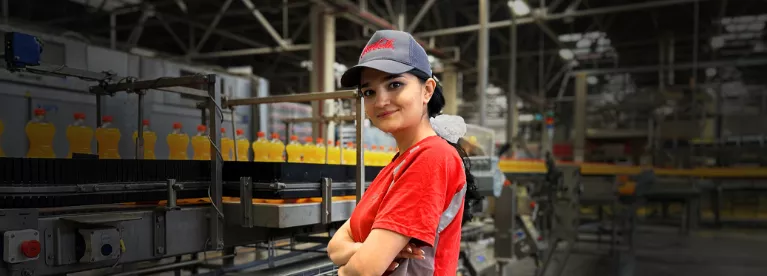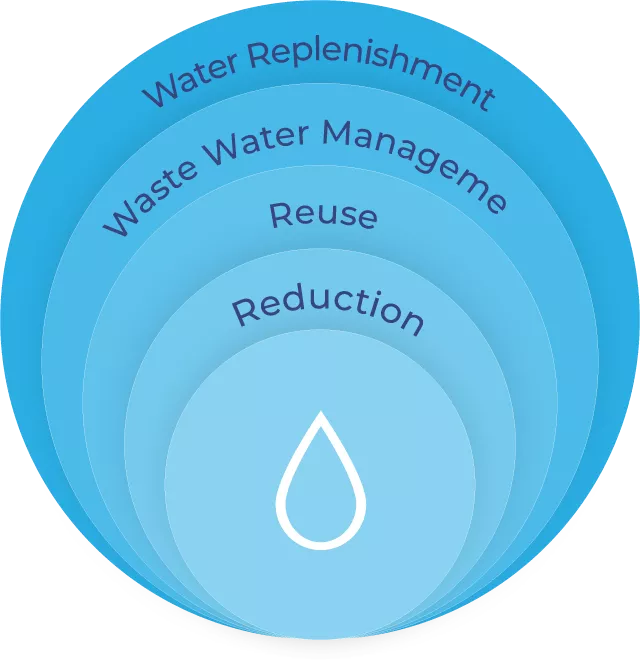Responsible Production

*The data is taken from our Integrated Annual Report 2024.
We work not only for the benefit of CCI, but also for the sustainability and well-being of the communities we serve, while minimizing the company's environmental impact by using fewer natural resources and generating less waste throughout our value chain.
Food Safety and Product Quality
We manage our food safety and product quality, environmental impacts, and the quality and safety performances of our facilities through Coca-Cola Operating Requirements named KORE Regular KORE audits and assessments are conducted at each plant by internal auditors to ensure compliance with standards, obtain relevant certifications and participate in approved excellence programs.
We Minimize Our Environmental Impact Across Our Value Chain
Click to reach our First Environment Policy which was published 22 years ago when we embarked our sustainability journey.
Sustainable Packaging & Waste Management
We systematically consider packaging as a whole, from design to production, from recycling to reuse, thus supporting circular economy practices. Additionally, packaging, which is the most important components of product quality, comes with its responsibilities such as conserving resources and the efficient use of energy. As CCI, we contribute to the circular economy and reduce our carbon footprint, while our sustainable packaging efforts ensure the safe delivery of our products to our customers and consumers.
Water Management
Our Water Management Strategy:
- Improving the overall efficiency of water use in our plants;
- Conducting Source Vulnerability Assessment (SVA) and Source Water Protection (SWP) studies to protect water retention basins in the regions where our plants are located;
- Managing wastewater discharge and rainwater harvesting in our plants (Achieving 100% compliance in wastewater treatment);
- Replenishing the water we use back to the nature by implementing programs for local benefit;
- Assessing, understanding and implementing source water protection plans and water management plans to create long-term, effective solutions addressing water scarcity by collaborating with local governments, nongovernmental organizations and communities to reduce risks on our communities and our business;
- Researching and investing in new technologies to reduce water consumption;
- Investigating opportunities for sustainable resource supplies and carrying out a feasibility study.

Energy Management and Tackling Climate Crisis
The main focus areas of our energy efficiency and climate protection strategy are:
- Reducing energy usage and greenhouse gas emissions through energy efficiency programs rolled out across our manufacturing operations, plants and sales offices;
- Reducing direct emissions caused by logistic activities through effective fleet and fuel management and optimized processes;
- Reducing indirect emissions by focusing on climate-friendly cooling programs;
- Raising awareness of climate protection by working with our sales partners, distributors, suppliers, employees and other stakeholders;
- Regularly calculating, verifying and reporting the carbon footprint of our activities;
- Raising awareness of the climate crisis by engaging with our stakeholders on relevant platforms;
- Calculating the carbon footprint of our products following a life cycle approach;
- Exploring clean and renewable energy options and making investments along the way when and where possible;
- Exploring options for procuring sustainable resources while conducting a feasibility study.



